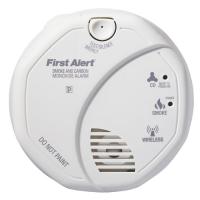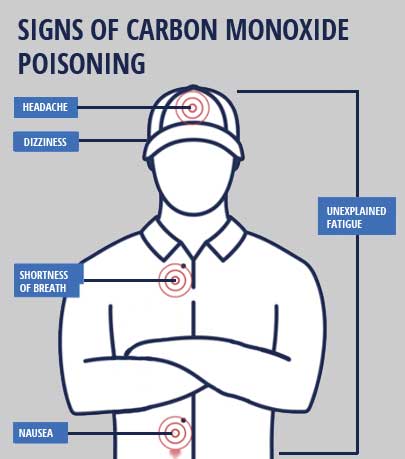Propane Safety
What You Should Know
CALL NOW: (315) 676-2978
For gas odors, gas leaks, urgent delivery, or repairs requiring immediate attention, please call us at (315) 676-2978. ALL gas odors and gas leaks require someone to be dispatched immediately.
IF YOU DETECT A GAS LEAK, CALL 911.
IF YOU SMELL GAS:
- NO FLAMES OR SPARKS! Immediately put out all smoking materials and other open flames. Do not operate lights, appliances, telephones, or cell phones. Flames or sparks from these sources can trigger an explosion or a fire.
- LEAVE THE AREA IMMEDIATELY! Get everyone out of the building or area where you suspect gas is leaking.
- SHUT OFF THE GAS. Turn off the main gas supply valve on your propane tank, if it is safe to do so. To close the valve, turn it to the right (Clockwise).
- REPORT THE LEAK. From a neighbor’s home or other nearby building away from the gas leak, call your propane retailer right away. If you can’t reach your propane retailer, call 911 or your local fire department.
- DO NOT RETURN TO THE BUILDING OR AREA until your propane retailer determines that it is safe to do so.
- GET YOUR SYSTEM CHECKED. Before you attempt to use any of your propane appliances, your propane retailer or a qualified service technician must check your entire system to ensure that it is leak-free.
DO NOT UNDER ANY CIRCUMSTANCES TRY TO MODIFY OR REPAIR VALVES, REGULATORS, OR OTHER CYLINDER OR APPLIANCE PARTS.
CALL YOUR PROPANE RETAILER OR A QUALIFIED SERVICE TECHNICIAN FOR ASSISTANCE!
WARNING
DO NOT OPEN THE CONTAINER SHUT-OFF VALVE!
If this valve is turned off for any reason, the National Fuel Gas Code (NFPA 54) requires a leak check of the system serviced by the container at the time the gas valve is turned back on. The leak test must be conducted by a qualified technician. Do not attempt to open the valve yourself! Failure to follow this warning may result in the ignition of leaking gas, causing serious and potentially fatal injury, fire, or explosion.
Carbon Monoxide (CO) & Your Safety
WHAT IS CARBON MONOXIDE?
 Carbon Monoxide (CO) is a colorless, odorless, tasteless, and toxic gas. When inhaled, CO interferes with the blood’s ability to absorb and transport oxygen. High levels of CO can be produced when fuels are burned incompletely. Smoking a cigarette, idling a gasoline engine, and burning fuel oil, wood, kerosene, natural gas, and propane all produce carbon monoxide. High levels of CO can be generated by appliances that are defective or improperly installed or maintained. CO can also enter a home if an appliance venting system or chimney becomes blocked.
Carbon Monoxide (CO) is a colorless, odorless, tasteless, and toxic gas. When inhaled, CO interferes with the blood’s ability to absorb and transport oxygen. High levels of CO can be produced when fuels are burned incompletely. Smoking a cigarette, idling a gasoline engine, and burning fuel oil, wood, kerosene, natural gas, and propane all produce carbon monoxide. High levels of CO can be generated by appliances that are defective or improperly installed or maintained. CO can also enter a home if an appliance venting system or chimney becomes blocked.
Carbon Monoxide Can Be Deadly!
Exposure to CO causes flu-like symptoms such as headaches, nausea, dizziness, drowsiness, confusion, impaired judgment, loss of manual dexterity, and even loss of consciousness. In severe cases, CO poisoning can cause brain damage and death. The elderly, children, people with heart and respiratory conditions, and pets may be particularly sensitive to CO and may feel the effects sooner.
IF YOU SUSPECT CO IS PRESENT, ACT IMMEDIATELY!
- If you or a family member has physical symptoms of CO poisoning, get everyone out of the building and call 911 or your local fire department.
- If it is safe to do so, open windows to allow entry of fresh air, and turn off any appliances you suspect may be releasing the CO.
- If no one has physical symptoms of CO poisoning, but you suspect that CO is present, call your propane retailer or a qualified technician to check CO levels and your propane equipment.
SOME SIGNS OF IMPROPER APPLIANCE OPERATION THAT CAN GENERATE HIGH CO LEVELS:
- Sooting, especially on appliances and vents
- Unfamiliar or burning odor
- Increased moisture inside of windows
- For an extra measure of safety, we recommend that you consider installing a CO detector.
THE DANGERS OF UNCAPPED LINES
Leaks that occur from open lines are extremely dangerous due to the potential for a large volume of gas to be released over a short period of time.
All lines not attached to appliances must be closed and terminated with threaded caps or plugs. If you have any questions, please call your propane supplier.
What is Propane?
Propane (also call LPG-liquefied petroleum gas or LP gas) is a liquid fuel stored under pressure. Propane is a safe, economical, clean-burning, and versatile fuel when properly used. In most systems, propane is vaporized to a gas before it leaves the tank or cylinder and then is dispensed through a pressure regulator to your appliance. Propane vapor disperses readily, as do alL gases. The movement of propane vapor, which is heavier than air, can be influenced by such factors as air currents, relative temperatures, and airflow rates. propane vapor should be treated with the same caution as is applied to other flammable gases. Propane is flammable when mixed with air (oxygen) and can be ignited by many sources, including open flames, smoking materials, electrical sparks, and static electricity. Severe “freeze burn” or frostbite can result if propane liquid comes in contact with your skin.
Propane plays an important role in our everyday lives. propane is used not only as an efficient energy source for heating and cooking; but also is used extensively in manufacturing and agriculture. To most consumers, propane is an invisible fuel, transported in tanks and underground, ready to use in your home or business. But like all fuels, it must be handled wisely to ensure safety. Propane is a liquid hydrocarbon that vaporizes into a colorless, odorless, highly flammable gas. In properly maintained and operated systems, propane is completely safe. However, it can be extremely dangerous if an uncontrolled release of propane occurs. In order to detect an uncontrolled release of propane, an odorant, usually, ethyl mercaptan is added to propane before it is delivered to your home.
Propane is a Safe Fuel?
The propane industry has developed numerous methods to make the transport and use of propane safe:
- Propane equipment and appliances are manufactured to rigorous safety standards.
- Propane has a narrow range of flammability when compared to other petroleum products.
- If liquid propane leaks, it vaporizes and dissipates into thin air.
- Because it is released from a pressured container as a vapor, propane can’t be ingested like gasoline or alcohol fuels.
- Because propane is virtually odorless and colorless in its natural state, a commercial odorant is added so propane can be detected if it leaks from its container.
- Propane is not harmful to soil or water
- Propane gas is nontoxic and produces minimal emissions
What does Propane Smell Like?
Propane has a strong, unpleasant odor that smells like rotten eggs, a skunk’s spray, or a dead animal. Propane manufacturers add an odorant deliberately to help alert customers to propane leaks.
Can you Smell Propane?
Some people may have difficulty smelling propane due to age (older people have a less sensitive sense of smell), a medical condition; or the effects of medication, alcohol, tobacco, or drugs. Propane vapors are heavier than air. For this reason, they may accumulate in low-lying areas such as basements, crawl spaces & ditches, or along the floors. A phenomenon called “odor fade” can occur. Odor fade is an unintentional reduction in the concentration of the odor of propane, making it more difficult to smell. Air, water, and rust in a propane tank or cylinder may weaken gas odor. Consider purchasing a propane gas detector as an additional measure of security. Be sure the units you purchase are listed by Underwriters Laboratories (UL) To be sure propane gas detectors operate properly, install & maintain them as the manufacturer recommends. Never ignore the smell of propane, even if no detector is sounding an alarm signal the presence of propane. Even if you install gas detectors, have a qualified service technician inspect your propane system and propane appliances periodically.
Putting the “Pro” in Propane Since 1985
Choose Country Propane & Join Our Family Today
As a local, family-owned and operated propane providers in the Syracuse and Central New York area, we are committed to providing reliable, friendly, safe, and responsive propane service to all our customers. At Country Propane, we are large enough to serve you – even during the most severe winter heating season – and small enough to care.


